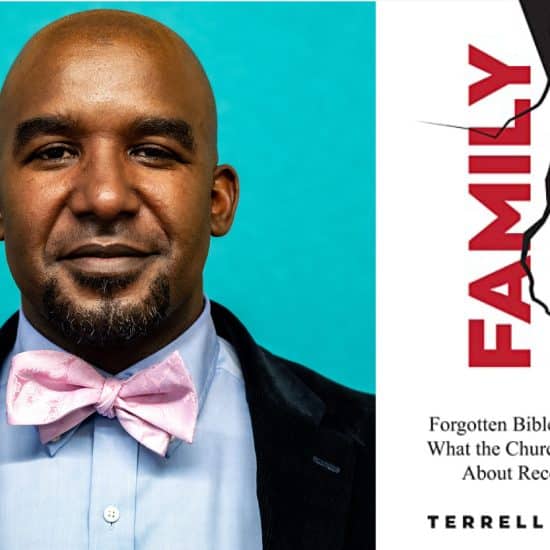First Baptist Church of Stilwell, Kan., has gained positive notoriety with its community garden, which butts up against one of the busiest streets in the area. Senior Pastor David Richardson says it is growing in the congregation’s front yard.
The church is located near the intersection of Broadmoor Lane and Metcalf Avenue south of Overland Park, Kan., and the garden sits right on West 199th Street, hard to ignore from the busy street.

Left to right, volunteers Mike Boydston, Kathy Barrett and Erin Lyon water the expansive community garden that supplies produce for the Caring Ministry food pantry at First Baptist Church of Stilwell, Kan.
|
Richardson and Caring Ministry Director Donna Rains recall the winter of 2010 when a high school student in the congregation asked the church for permission to initiate a project on a portion of the congregation’s six acres to fulfill a senior project requirement for her high school graduation.
Her idea was to plant a garden, the proceeds of which would add a fresh-vegetable component to the congregation’s weekly food pantry ministry to the less fortunate of the town during the summer months. The church enthusiastically supported the idea, but the local school board questioned whether the project might cross church-state separation boundaries. It subsequently denied the proposal.
Still, the idea took root.
Richardson determined to pursue the garden. “I broke four sticks from a tree; I planted the stakes in our front yard,” he recalled. “Everybody seemed pleased that we were using the front yard…to plant vegetables to give away.”
A little later, “I attended a pastors get-together and overheard some guys talking about a Palmer (Foundation) Grant. It was named for the man after whom the seminary where I graduated was named” (Palmer Theological Seminary, associated with Eastern University).
The theme for the grants that year — given in conjunction with American Baptist Home Mission Societies and the American Baptist Foundation — was “Discipleship and Incarnational Practice.” The purpose was to get churches to think outside the box in an effort to reach people, Richardson said.
“I went to a gardener in the church and asked him to compile a list of everything we would need” to start and maintain a community garden, Richardson said. “He suggested storage buildings, a big tall fence to keep the critters out, a tiller, other supplies and seed. It came to $11,200.”
The pastor had earlier become certified as a grant-writer so he decided to make a request for the church.
Six months later — in February 2011 — “a big fat envelope arrived from the Palmer Foundation. It contained a check for $11,200.”
The congregation decided on a 16,000-square-foot garden and to surrounded it with a 10-foot-tall chain link fence, he said. “Today it has three utility sheds to store equipment and supplies,” Richardson said.
Volunteers assume responsibility for preparing the garden for planting in the spring and regularly fertilizing, watering and weeding it during the growing season. Rains said the produce is picked each week and sometimes takes 10 volunteers all morning to finish the job for particular weeks.
She and the pastor make appeals when more volunteers are needed for a particular aspect of the garden operation.
The garden has been an unqualified success, and it has dovetailed with a vibrant food-pantry ministry. While the garden provides fresh produce, the pantry relies on many sources for food, including the Harvesters Food Bank, which serves a 26-county area of northwestern Missouri and northeastern Kansas.
Harvesters trucks make drops to Stilwell, and the food pantry itself has a truck to pick up food items and supplies as they are needed and become available.
Rains said 15-20 churches in the area regularly drop off food. For instance, every quarter the Church of the Resurrection in Overland Park, Kan., drops off a ton of canned food.
Church families and others in the community also donate.
The Caring Ministry director since 2000, Rains said the every-Tuesday ministry has grown steadily. In August, the pantry served 1,204 families, or 3,641 people, and a month later, 1,530 families (5,495 people) came for help.
“On average, we will grow and give away 6,000 to 9,000 pounds of vegetables each summer,” the pastor said. “We are heading for 8,000 pounds this summer.”
Rains keeps track of the numbers and notices which months tend to draw more people to the pantry than others, and she adjusts requests from food donations and food bank orders appropriately.
A long line of cars winds around the church and into the nearby area on distribution Tuesdays from 2-5 p.m., and people take home a variety of canned and boxed goods augmented with freshly picked green beans, tomatoes, peppers, zucchini and the like.
Some time back, the church received donations of strawberry and blackberry bushes and planted them. More recently, several apple and peach trees were donated and planted.
The pantry enlists the help of church members, including several high school students who volunteered regularly during the past summer, Rains said. Volunteers from other community food pantries inevitably show up to help, too.
Loaders place food into each vehicle within minutes, then go to the next one in line.
Loaders say that in the 1-3 minutes they are with a person, they hear a life story and why the food ministry is important to them. One loader gave a driver a package of meat and learned that the family had not had meat on the table for a month.
“This is a place of comfort and love, and they can receive what God provides,” Rains explained. “It’s not what we serve, it is how we make them feel. We make them feel they deserve it.”
Richardson said the church does not try to screen out people. The philosophy is simple: “If they humble themselves by coming here, it is our responsibility to feed them,” he said.
The congregation has secured a walk-in refrigerator and freezer that have proven helpful as the pantry sets aside meat and vegetables for emergencies and for distribution at Thanksgiving and Christmas, Rains said.
Without a doubt, the community garden has become a landmark that passersby associate with First Baptist, Richardson said.
On a trip, the Harley-riding pastor stopped for gas about 135 miles from Stilwell. When the clerk asked where he was from, Richardson told him he was a pastor from Stilwell, Kan.
When the pastor answered, the clerk said, “Isn’t that the one with the vegetable garden in the front yard?”
“Something about using the front yard to help less fortunate folks changed the hearts and the perception of the community” about the church, Richardson said. And that has been a good thing.






